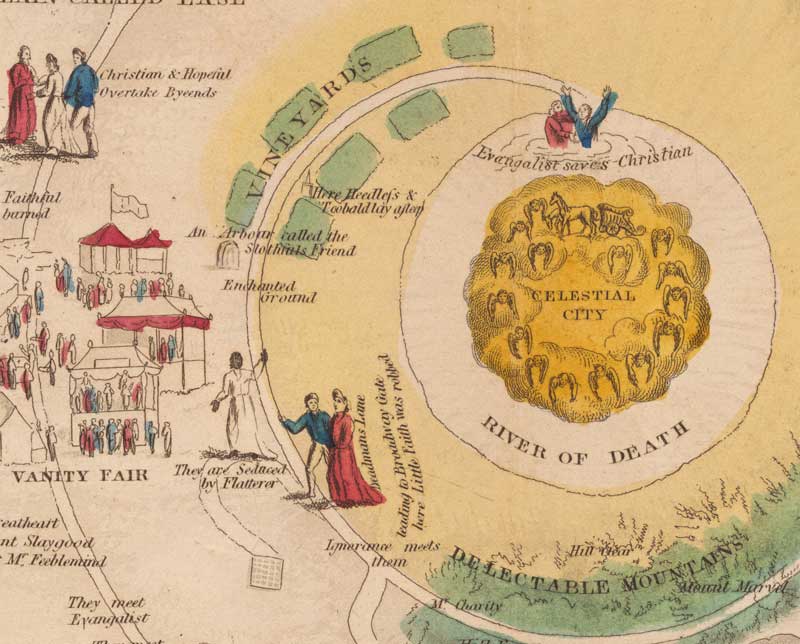John Bunyan was a radical. Perhaps you might even call him a religious radical. And maybe some might call him a fanatic.
Bunyan had no thought of hashtags or Twitter. He lived in the 17th century, a time when most book titles weren’t short enough to fit in a Tweet.
His best-selling book, The Pilgrim’s Progress from This World to That Which Is to Come; Delivered under the Similitude of a Dream, is not for one time period, but for all time. Extraordinary in its influence, The Pilgrim’s Progress has shaped modern Western culture.
Doubt that a “religious fanatic” could still have a voice? Think again. Better yet, read Slaughterhouse-5 by Kurt Vonnegut. Billy’s last name has direct reference to Pilgrim’s Progress. Bunyan had made a traveller of Vonnegut.
What about Vanity Fair by William Thackeray? Or the current fashion magazine Vanity Fair? Vanity Fair is a city in Pilgrim’s Progress. Bunyan had made a traveller of Thackeray and the publishing fashionistas of Vanity Fair magazine.
In today’s lingo, Bunyan was a radical creative. His views of God and Jesus and the church, and consequently his political views, were considered a threat to the societal order of his day.
He spent a lot of time in jail—12 years to be exact. And while his jail time might have been unjust, The Pilgrim’s Progress might not have been written had he not been incarcerated and prevented from preaching his “false” ideas.
But like a certain editor that I know, the English authorities of the 17th century had no concept of the power of fiction. They would have been smarter to let Bunyan preach. He would have had less impact traveling from pulpit to pulpit.
Just a few years after publication, The Pilgrim’s Progress had been published into several languages and was an international bestseller, topping all publication records. To bring it back into today’s terms, it went viral instantly.
The charm of The Pilgrim’s Progress then and now is its truth. Truth travels far and well.
Truth never dies. Neither should our reading of those books that contain it.
Bunyan will make a traveller of you too, if you let him.
I promise.
Come, pluck up, heart; let’s neither faint nor fear.
John Bunyan, The Pilgrim’s Progress
Better, though difficult, the right way to go,
Than wrong, though easy, where the end is woe.”
